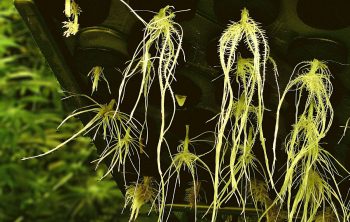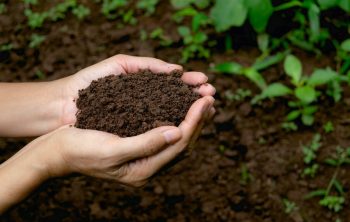If you are a fanatic of green living, then you would be aware of the benefits of recycling waste. It doesn’t matter if it is your leftover food or urine from your toilet, there are methods to convert it into nutrients, for the plant.
While there may not be many inquests into the safety of composting the kitchen waste, there are concerns about the safety of using human waste in the garden.
With the right knowledge on how to safely recycle toilet waste, gardeners can channel all that poo to good use.
Is It Safe to Compost Human Waste?
While it is safe to compost human waste, you should be careful not to use humanure on edible garden plants. What this means is that you can use it on ornamental plants and lawn grass, but not on your veggies and fruits.
You also should be aware that although human waste in rich in organic matter and nutrients, it is also laden with bacteria, viruses, and pathogens that are not removed by composting.
Compared to chemical fertilizers, human waste is a safer option to use on your flowers, potted plants, garden trees, and other plants that you don’t eat.
Another reason why most people shy away from composting human waste is that they can’t seem to find a neater way to do it. With the right composting devices, you can make the process easier and save yourself the hassles involved with composting.
How to Collect Human Waste?
Commercial composters are large scale facilities with the right equipment to process a high volume of waste. Night
They hire workers who collect the waste from the city and transport to their out of townsite.
On getting to the site, the waste is converted into fertilizer and the cycle continues. Most facilities that engage in the business have customers who are available to purchase the processed fertilizers. In most cases, large scale florists and farmers looking for organic manure for their plants.
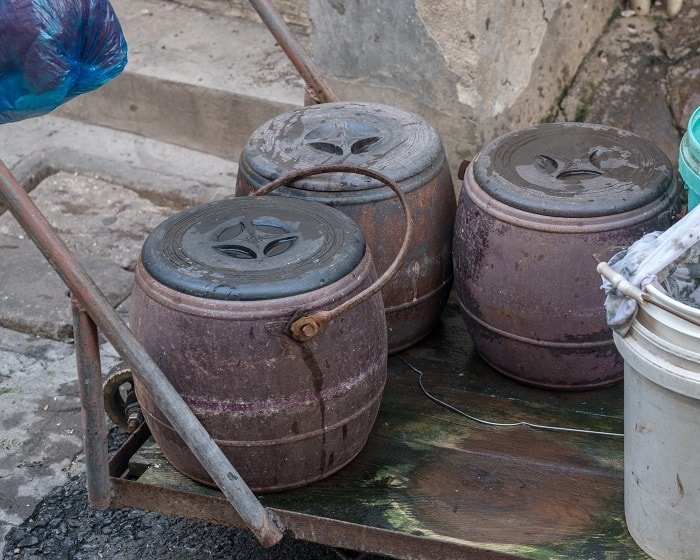
Conversion of human waste into compost before adding to garden
What is the Best Method of Composting Humanure?
A lot of gardeners worry about the safety of using compost on their plants. Many of them, because they do not know how to go about the process.
While you can make use of a compost bin to convert your kitchen waste to manure, it will be unhealthy to do the same with your toilet waste. So what is the best method to compost human waste?
-
Use a Composting Toilet
A composting toilet is the easiest way to convert your toilet waste to manure without getting your hands dirty. All you need do is to install the system and do your business, then occasionally turn the composter to speed up the whole process. There are different models of composting toilets available to choose from, so you want to do your research properly to find the one that works best for you. You should be aware that some of them cost less than $100, while you can spend up to $10,000 on some systems.
Most of the elaborate systems are built on-site and are equipped with everything you need. They are odor-free, self-contained and feature compartments where you can easily access readymade compost. Some other brands have separate paths for collecting urine and feces, while others have separate systems fitted on them. Once one of the systems is full, it is closed, and the other is opened; the process is repeated until there are no new piles available.
Tips on How to Successfully Compost Human Waste
-
Use a Composter
If you can’t get access to a composting toilet, but still see the need to convert your toilet waste, then you should consider using a compost tumbler instead of a bin. The reason for this is that a compost tumbler turns the pile automatically; whereas you will have to do it manually with a compost bin, which can be messy.
-
Keep it Dry
You want to ensure that human waste is kept dry. You have to ensure that it is covered at all times, to prevent water, snow, and moisture from getting into it. When this happens, it can make the compost smell bad, and reduce the degradation process. You shouldn’t have to worry about this with a compost tumbler since the units are completely sealed.
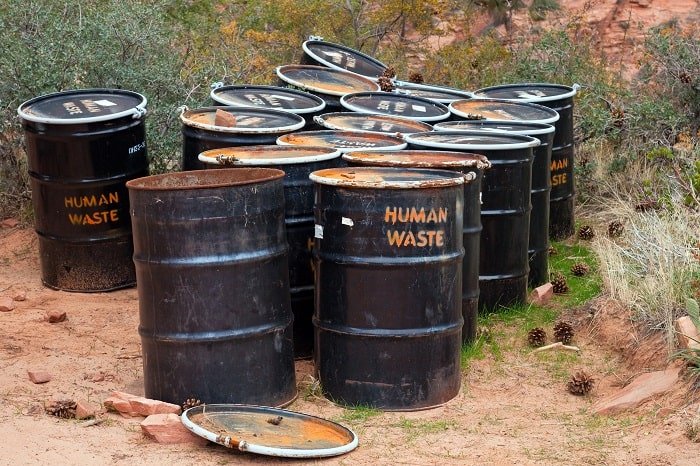
-
Use Lime
We always recommend that you add lime to your compost tumblers with human waste. Adding lime to the system helps to kill the pathogens and bacteria and speeds up the entire process. With the addition of lime, your humanure can be ready in less than 4 months, while it can take up to a year without adding lime. So if you are eager to get your result in the shortest possible time, you may want to think about using lime along with a compost tumbler.
-
Avoid Using it on Edible-Plants
You should avoid using human waste on your edible-garden plants. If you eat it, you shouldn’t use toilet waste on it. You don’t want to risk contracting diseases from the plants when it is ingested. You can make a separate compost bin for your kitchen waste for use on your veggies and berries, and all other plants in your garden. There is also the option of purchasing already made organic compost for use in your garden. Whatever method you choose, it doesn’t matter; so long as you don’t make use of chemical fertilizers that are unsafe for your plant and the environment.
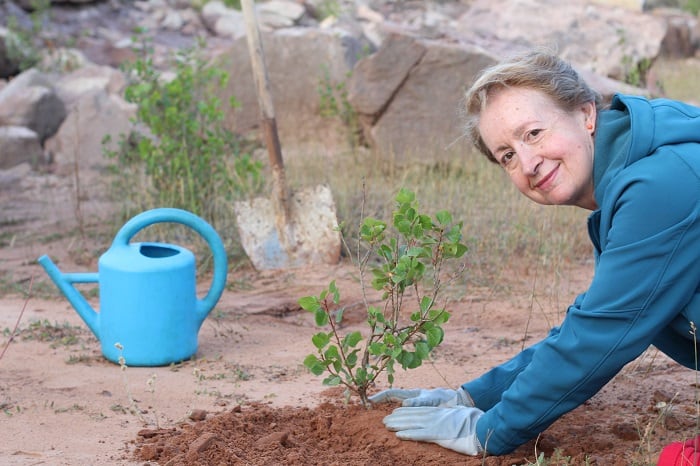
FAQ’s
Can you use human poop for composting?
You can use it if you know how to do it properly, but generally speaking, no, human poop is not suitable for composting. It contains high levels of nitrogen and potassium, which can kill plants. In addition, it contains some dangerous pathogens, such as salmonella and E.
What are the easiest ways to compost human waste?
there are many ways to compost human waste. For example, you can collect urine in a bucket, mix it with sawdust or newspaper, and add worms. This type of composting is called vermicomposting. Or, you can collect feces and mix it with some organic matter, such as kitchen scraps or manure, and then add worms.
This process is called anaerobic composting. Another method for composting human waste is to pour the liquid portion of the waste into a pit lined with straw, and then pile the solid portion of the waste on top of the liquid. When the liquid drains into the pit, the solid waste will decay and eventually break down to form new soil. You can also compost human waste in a worm bin. A worm bin is a special container that holds worms that will eat the waste.
The worms will turn the waste into rich, fertile soil.
When shouldn’t I use human waste?
If it smells bad, DON'T. It's not healthy for the ecosystem and will probably attract unwanted critters like flies and beetles.
Why is human waste so harmful?
It’s because the pathogens in human waste can be transferred to our food and water supplies, as well as into the environment. Pathogens are germs that cause diseases. They come from animal or human feces, as well as from insects, plants, soil and water. The term “pathogen” is used when we are speaking about bacteria, viruses, protozoa or other microorganisms.
Is human faeces alone good for plants?
The answer is a resounding “no.” The waste products of the human body have many harmful effects on plants, including soil quality and plant health.
There are two main reasons why we should be concerned about our waste:
1. The soil is the source of life. Soil acts as a filter, separating out nutrients and pollutants from the water that flows through it.
If the soil becomes polluted, it will eventually cause problems for plants.
2. Humans need food to live. When we eat food, we take in many nutrients, including vitamins, minerals, fiber, and proteins. When those nutrients enter the human body, they are transformed into waste. When our waste is not properly disposed of, these nutrients can pollute our soil and waterways, which may then cause problems for other organisms, such as fish and wildlife.
Conclusion
Composting is of great benefit, as it is a great way to convert waste into organic matter for use in agriculture. If you are a gardener, you can provide your plants with rich

Josephine is an enthusiastic gardener who loves to spend her spare time tending to her garden. She is passionate about growing her own food, and aspires to one day have her own vegetable garden. Josephine is also an animal lover and often takes in stray cats and dogs. She enjoys spending time with her pets in the garden, and is often seen playing with them or watering her plants. Josephine is an avid reader and enjoys learning about new gardening techniques and plants. She is always looking for ways to improve her garden and make it more beautiful. She is a great friend, always willing to lend a helping hand when needed. Josephine‘s passion for gardening and love of animals make her a wonderful addition to any garden.


